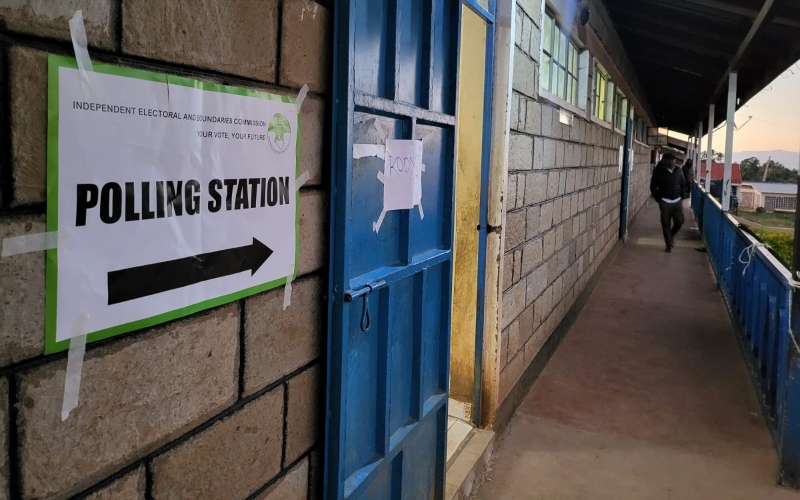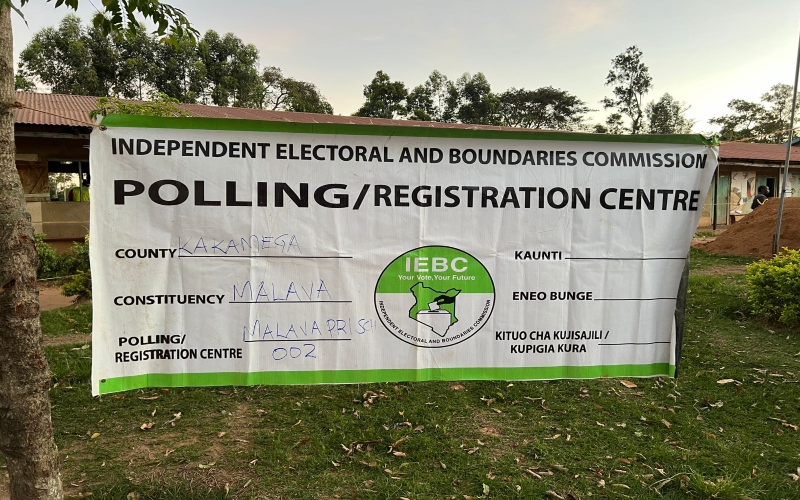New procurement bill prioritises Kenyan companies for contracts under Sh1 billion

The proposal is seen as a major win for local firms, which have often struggled to access financing to compete with foreign companies, which have an advantage due to cheaper loans and advanced technology.
The National Assembly has approved the Public Procurement and Asset Disposal (Amendment) Bill, which seeks to limit the dominance of foreign firms in local tenders.
Sponsored by Molo MP Kimani Kuria, the bill prioritises local companies for tenders under Sh1 billion as part of efforts to promote the growth of local industries.
More To Read
- Judiciary faces Sh576.6 million pending bills amid budget review
- Parliament pushes Public Participation Bill to streamline hearings
- New Bill seeks to end political patronage in diplomatic postings
- Cabinet backs data-driven plan to tame infrastructure overpricing
- President Ruto to deliver State of the Nation address on November 20
- Wetang’ula decries 'disruptive' conservatory orders, urges judicial restraint
The bill aims to exclude foreign firms from tenders under Sh1 billion to promote local businesses. For tenders exceeding Sh1 billion, foreign companies will be required to form joint ventures with local firms, contributing at least 30 per cent of the procurement value.
The local firm must be specifically named to provide certain goods, services, or works under the joint venture arrangement.
Before any such agreement is ratified, the Attorney-General's advice must be sought, and foreign firms are expected to submit detailed technology, knowledge, and skills transfer plans.
"The Public Procurement Regulatory Authority will monitor and evaluate the plans to ensure that local capacity is built," the bill reads in part.
The bill also seeks to set a clear threshold for when tenders must be awarded to local firms. These companies must be wholly Kenyan-owned and incorporated in Kenya.
It specifies that locally produced goods and services should be given priority in the procurement process.
The proposal is seen as a major win for local firms, which have often struggled to access financing to compete with foreign companies, which have an advantage due to cheaper loans and advanced technology.
The bill further prohibits subcontracting of local procurement contracts to foreign firms unless local companies are unable to provide the required goods or services.
"A successful tenderer who is a citizen contractor shall not subcontract a foreign company unless the knowledge, skill, good or service is not available in the country," the bill reads further.
The Public Procurement Authority is tasked with ensuring that priority is given to citizen contractors in such cases.
In cases where foreign subcontracting is necessary, the accounting officer must prepare a report detailing the reasons. Additionally, the authority will ensure that a percentage of the margin preference is applied.
To further strengthen the focus on local industries, the bill mandates that 40 per cent of all goods and services procured must come from local manufacturers or service providers.
The relevant Cabinet Secretary will also be empowered to create a master list for preferential procurement. The bill extends preferential treatment to local skilled and unskilled labour, with provisions to report on the unavailability of such labour when necessary.
To combat procurement fraud and unfair competition, the bill introduces strict penalties for individuals or companies engaging in these practices.
It criminalises the registration of companies on behalf of foreign individuals seeking to circumvent the rules and compete unfairly for contracts.
"A person who registers a company on behalf of a foreigner who engages in unfair competition with a view to benefiting from the procurement commits an offence," the bill states.
Offenders may face fines of up to Sh5 million or imprisonment for up to five years.
The bill also requires government entities to make prompt payments to contractors who meet their contractual obligations.
To protect contractors, the bill ensures strict monitoring to prevent the supply of substandard goods or services. Any person certifying or delivering substandard goods or services will face significant penalties.
"A person who certifies or delivers substandard goods or works that are incomplete, non-existent, or whose quality is below specifications contained in the contract commits an offence," the bill warns.
Violators may face a fine of up to Sh1 million or imprisonment for at least five years.
For corporate offenders, the fine is set at Sh10 million, in addition to a mandatory fine twice the amount of the benefit or loss gained.
Top Stories Today
















































